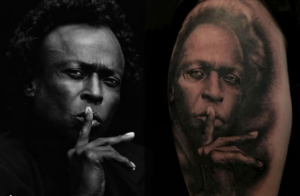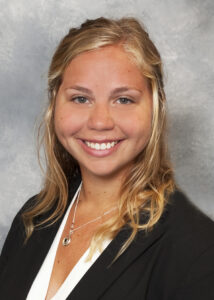
From Law & Order’s famous “dun, dun” sound to Tiffany’s iconic robin-egg blue, celebrities and companies have many trademarks you may not know existed. In 2024 alone, there have been 181,365 trademark applications, which is a 3.2% increase in applications. With so many applications, many people are left with the question: What can I trademark?
A trademark identifies a brand in conjunction with a good or service that the brand offers. You can trademark logos, words, slogans, letters, abbreviations, numbers, packaging designs, sounds, and even smells. For a trademark to be registered, the mark must be distinctive and original and must apply specifically to a class of products or services. Anyone can apply for a trademark in the United States by submitting an application to the U.S. Patent and Trademark Office (USPTO). A trademark in the United States can also last forever, so long as it is used in commerce and renewed on time every ten years.
What trademarks already exist? Of the millions of trademarks on file with the USPTO, we picked a few trademarks that you may not know are registered or were attempted to be registered:
1. “It’s On Like Donkey Kong”
In the 2010s, Nintendo filed an application to trademark the phrase “It’s On Like Donkey Kong” to ramp up for the release of “Donkey Kong Country Returns.” But where did the phrase come from? “It’s on like Donkey Kong” was first used by rapper Ice Cube in his 1992 song “Now I Gotta Wet’cha,” but Nintendo took the opportunity, as Donkey Kong spread across the pop culture world, to make the phrase their own.
2. Darth Vader’s Breathing
Darth Vader’s infamous heavy breathing is trademarked by Lucasfilm, a subsidiary of Disney. They own this trademark in two classes, both of which relate to Halloween costumes. The trademark is defined as “the sound of rhythmic mechanical human breathing created by breathing through a scuba tank regulator.” This trademark is known as a “soundmark.”
3. Usain Bolt’s Victory Pose
In 2022, after his retirement from the sports world, Olympic champion Usain Bolt applied to trademark his signature victory pose in the form of an image. Bolt filed for this silhouette image to use on clothing, jewelry, shoes, etc. Although the runner is retired and has announced he will not come back to professional sports, this trademark is Bolt’s way of using his image and likeness.
4. “19-0” by the New England Patriots (Denied)
In 2008, The Kraft Group, the parent company of the New England Patriots, applied to trademark the phrases “Road to Perfection,” “19-0,” and “Perfect Season” three days before beating the Chargers to advance to the Super Bowl. Unfortunately for the Patriots, the 2008 season was finished with a 18-1 record after losing to the Giants in the championship game. While the trademark “Road to Perfection” was eventually published in 2008, “19-0” was not trademarked until 2017, after the Patriots found a loophole of allowing the state football title game of 2015 to be played in Gillette stadium, where Xaverian Brothers won to secure a perfect season. Although the Patriots own this trademark, they have still never played the “perfect season.”
5. “Baggies”
The plastic sandwich bags have been under the trademark “Baggies” since the 1950s. What are “baggies”? The trademark is registered for “transparent plastic sandwich bags” and is held by the Pactiv Corporation, which also owns the Hefty brand.
6. “That’s Hot”
Reality star Paris Hilton trademarked her signature catchphrase, “that’s hot” at the peak of her reality TV fame in 2004. In 2007, she brought suit against Hallmark for using her likeness and the phrase on a greeting card!
7. Tiffany Blue
The iconic shade of blue that adorns every box from Tiffany & Co was trademarked by the company in 1998. It is produced as a private custom color by Pantone with PMS number 1837, which is the year Tiffany & Co was founded.
8. The Zippo Click
The CLICK made by a Zippo lighter is one of the most recognizable sounds in the world. Zippo Lighters have been featured in over 2,000 movies and countless music festivals. It truly is the CLICK heard ‘round the world!
9. Law & Order’s “Dun Dun”
According to composer, Mike Post, the iconic “Dun Dun” in the intro to Law & Order symbolizes the slamming of a jail cell door. Though many may not have known the meaning behind it, almost anyone can recognize the iconic sound.
10. Cardi B’s “Okurr” (Denied)
Cardi B has tried to trademark her signature “Okurr” but it was denied. The denial was because of the widespread use of the catchphrase and its origins before Cardi B adopted it. The Kardashians have also used this phrase, Khloe in particular. The origins of the phrase predate both the Kardashians and Cardi B, tracing its origins to drag and ballroom culture.
For help with your trademark needs, contact the clinic at businessclinic@elon.edu.










